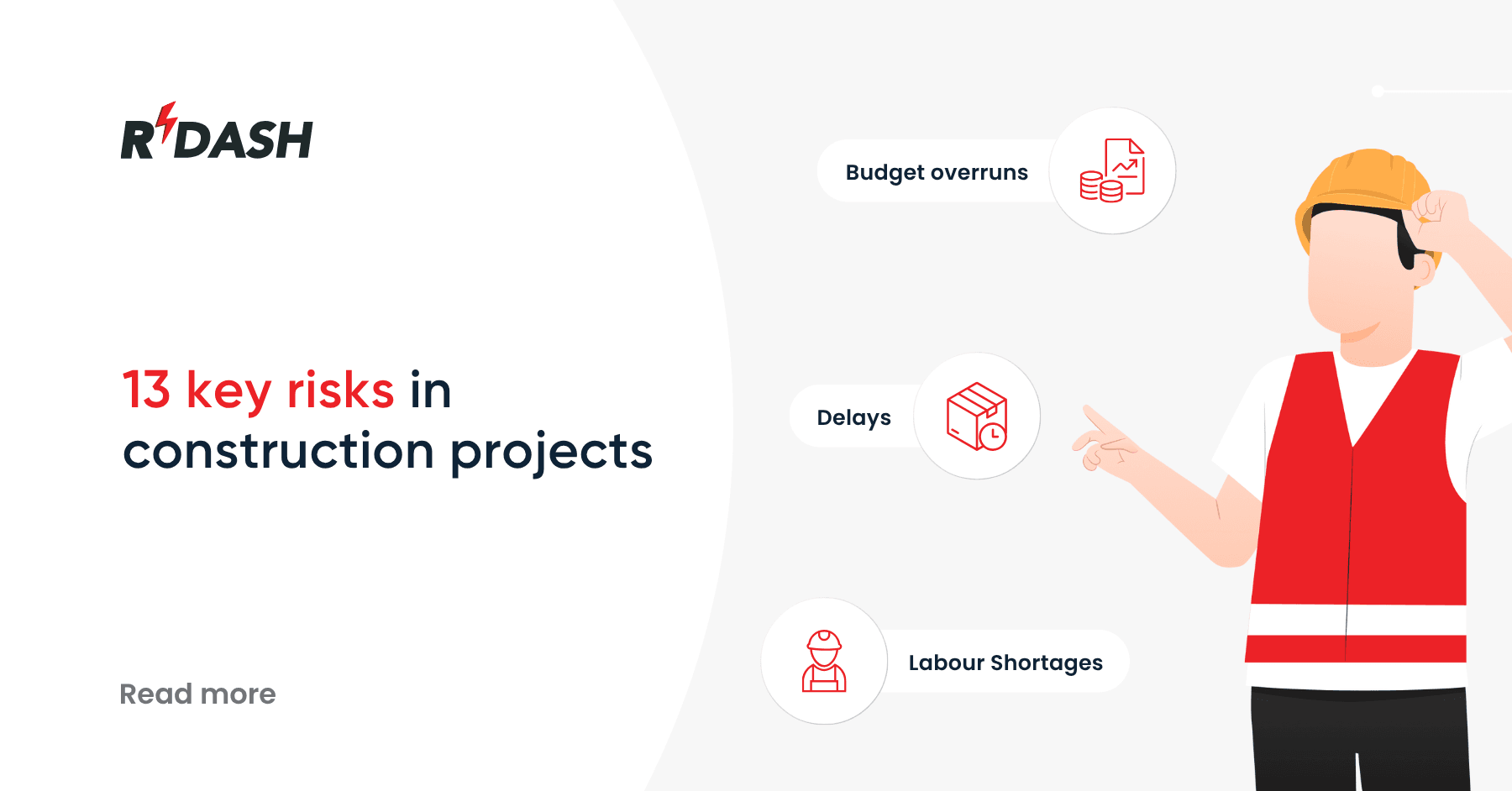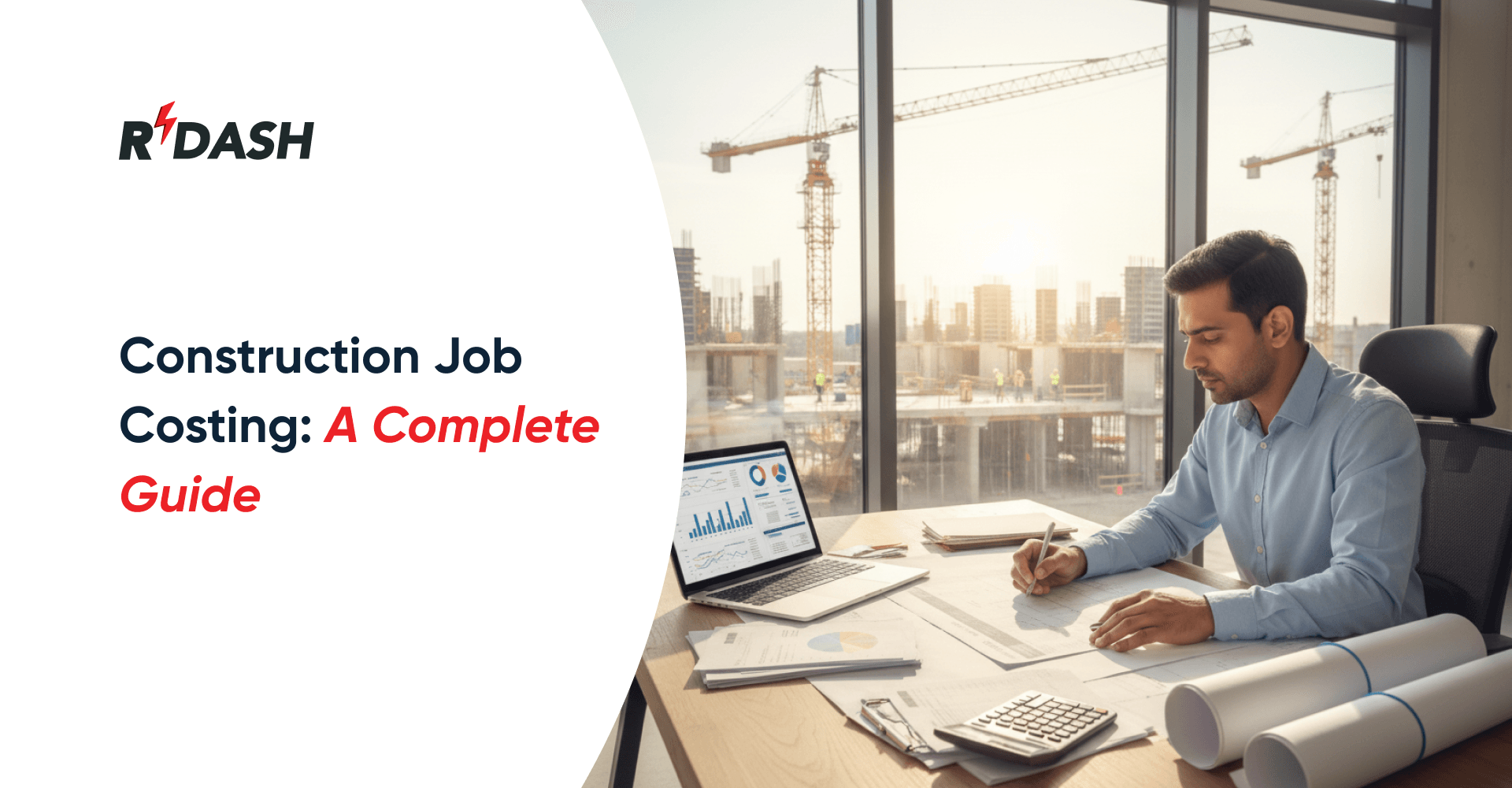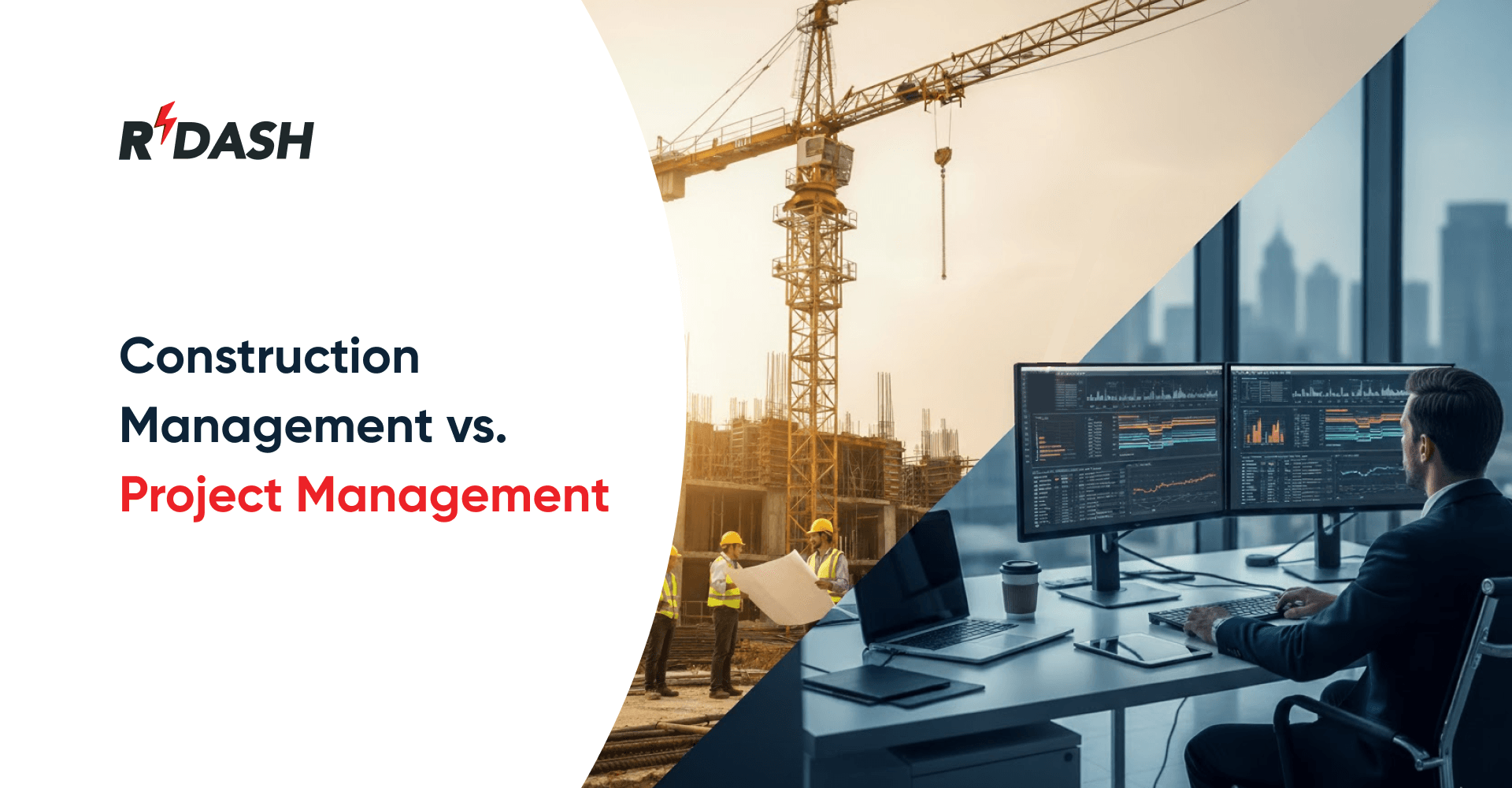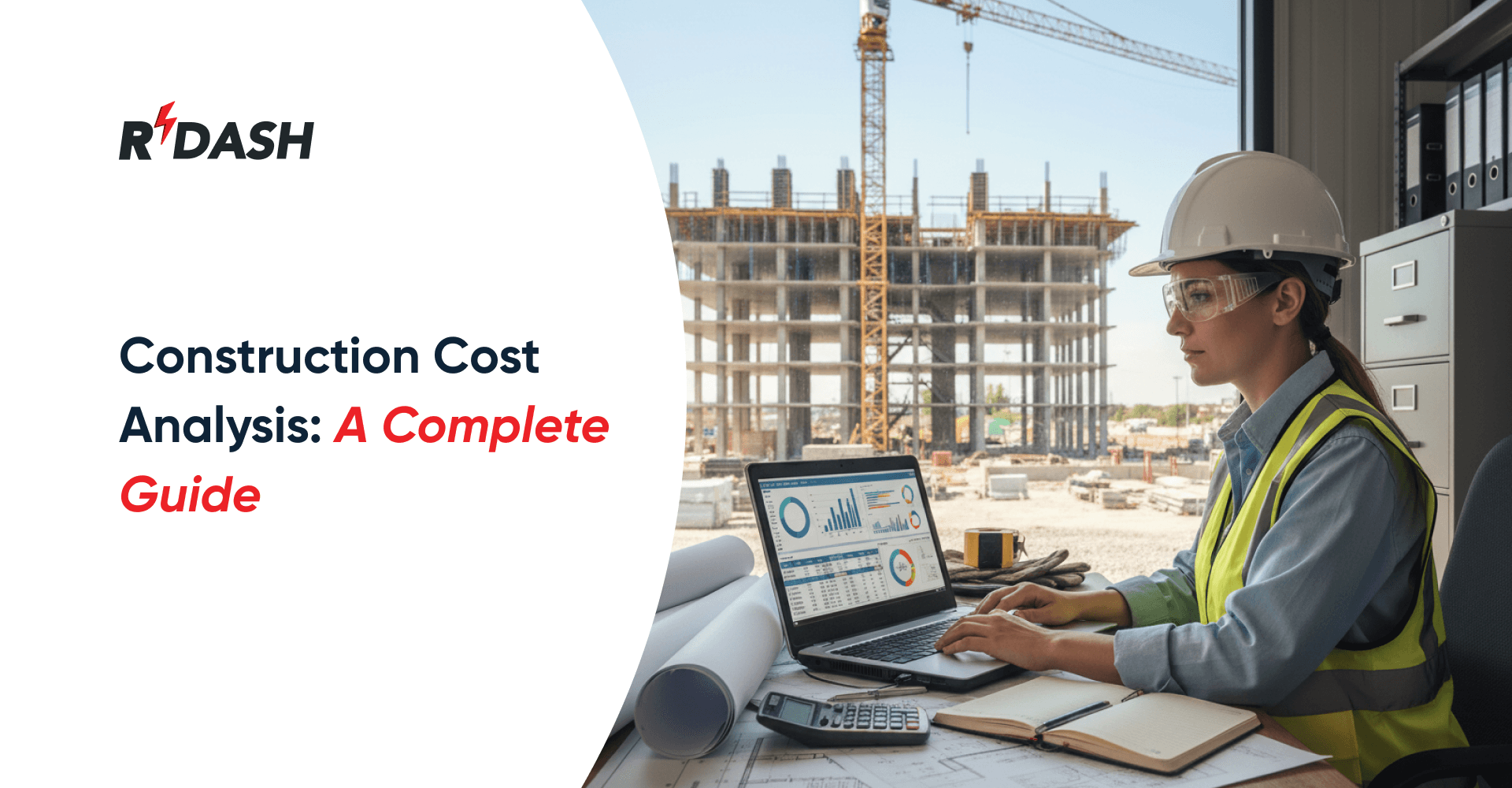What is risk in construction?
In simple terms, risk in construction means any problem or situation that can hurt a project’s progress, cost, quality, or safety. Construction projects deal with many tasks happening at the same time. Workers, materials, equipment, money, deadlines – they all need to come together smoothly. When something goes wrong with any part of this, the entire project can suffer.
Unlike some other industries, construction projects often face unpredictable conditions like bad weather, hidden site problems, changing client needs, or labor shortages. These risks can’t always be avoided, but they can be reduced if teams know what to watch for and plan ahead.
Why it’s important to understand construction risks
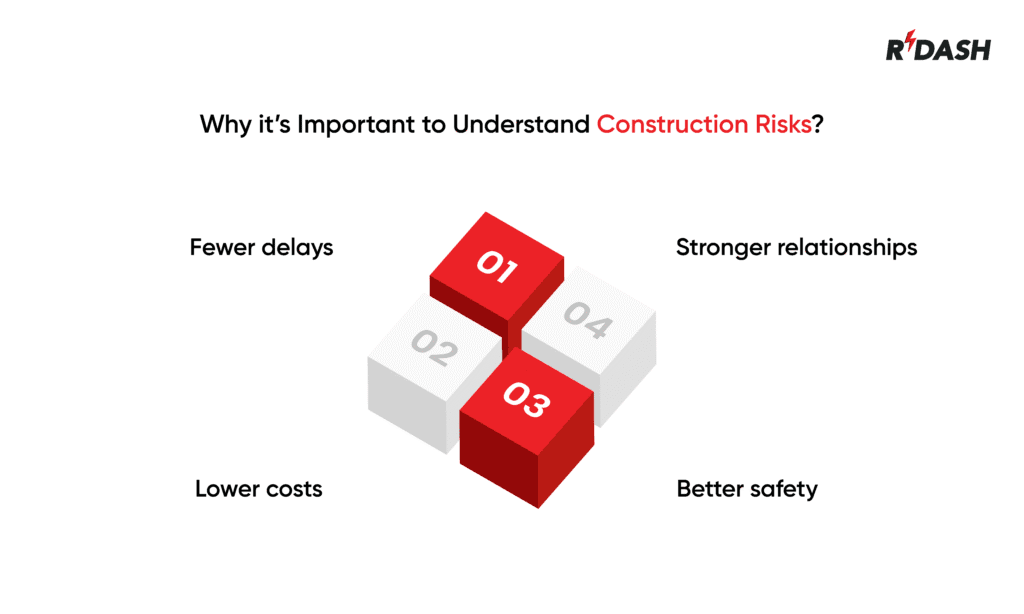
When construction companies or project managers understand the risks they might face, they can plan better. This means:
- Fewer delays because you can prepare for possible problems.
- Lower costs because you can avoid unexpected expenses.
- Better safety because you can train workers and use the right safety measures.
- Stronger relationships because good planning and clear communication reduce disputes.
Key risks in construction projects
Below are some of the biggest risks that construction companies often deal with. Knowing these can help you take steps to protect your project.
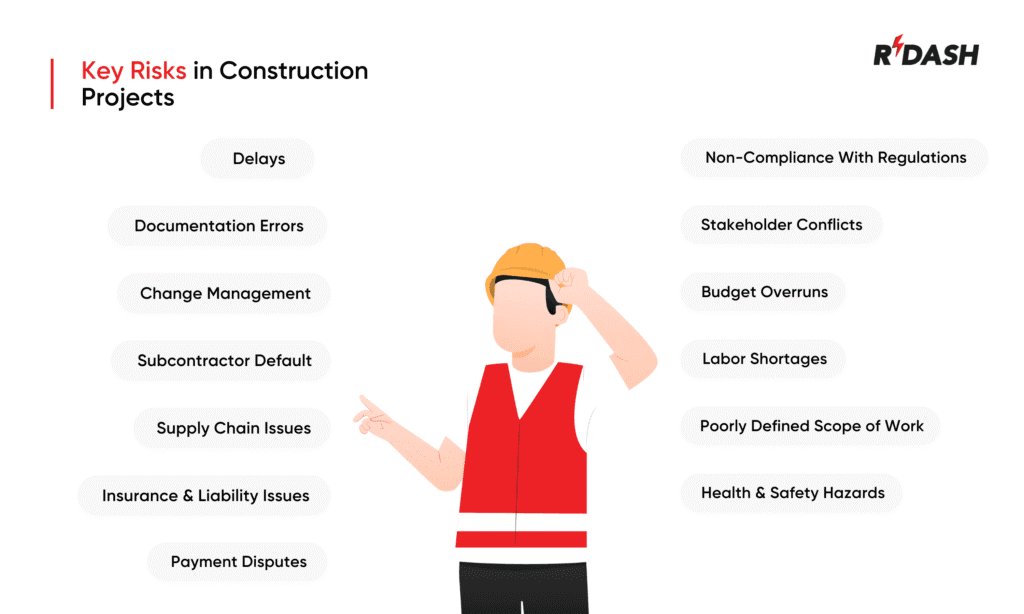
1. Delays
Delays can happen for many reasons: heavy rain, late deliveries, missing permits, or poor planning. Even a few days of delay can push deadlines back, increase costs, and upset clients. The longer the project is delayed, the higher the costs for labor, equipment, and materials.
2. Documentation Errors
Clear, correct documentation keeps everyone on the same page. If contracts, drawings, or permits are missing or wrong, it can cause big problems. Mistakes in paperwork can lead to extra costs, disputes, or legal issues that take time and money to fix.
3. Change Management
Most construction projects have changes along the way – maybe the client wants a new design or new materials. But without a clear process for managing changes, they can disrupt schedules and budgets. Unplanned changes create confusion among teams and increase the risk of mistakes.
4. Subcontractor Default
Construction projects depend on subcontractors to complete specialized work like electrical or plumbing. If a subcontractor does not deliver as promised, the entire project can be delayed. It can also cost extra money to replace them or fix their mistakes.
5. Supply Chain Issues
Every project needs materials delivered on time. Problems like supplier delays, damaged goods, or transport strikes can slow down work. Shortages of key materials can also force teams to find expensive alternatives.
6. Insurance and Liability Issues
Proper insurance coverage is critical in construction. If accidents happen and the company does not have the right insurance, they may face lawsuits and huge costs. Misunderstanding liability between contractors, clients, and subcontractors can also create conflicts.
7. Non-Compliance With Regulations
Each project must follow local building codes and safety standards. Failing to comply can lead to fines, work stoppages, or legal problems. Staying up to date with changing rules is an important part of managing risk.
8. Stakeholder Conflicts
Construction projects bring together multiple stakeholders, including owners, main contractors, subcontractors, suppliers, and clients. When communication is poor or expectations are unclear, conflicts can happen. Disputes over costs, work quality, or deadlines can bring progress to a halt.
9. Budget Overruns
Projects often cost more than planned when costs are not tracked carefully. This can happen because of poor cost estimation, unexpected price increases for materials, or rework due to mistakes. Budget overruns reduce profit margins and can even stop a project midway.
10. Labor Shortages
Finding skilled workers is becoming harder in the construction industry. Not having enough skilled workers can slow down progress and lower the overall work quality. It may also lead to higher labor costs when companies compete for a small pool of skilled workers.
11. Poorly Defined Scope of Work
If the scope of work is not clearly defined from the start, it can cause confusion about who does what and when. This often results in tasks being repeated, missed, or done incorrectly, wasting time and money.
12. Health and Safety Hazards
Construction sites are full of safety risks, from working at heights to using heavy machinery. Accidents can result in injuries, project delays, legal action, and damage to a company’s reputation. Having strong safety measures in place is essential.
13. Payment Disputes
Payment problems are a major headache in construction. Disputes about when or how much to pay can damage trust and stop work. Clear contracts, detailed invoices, and regular communication with clients help reduce this risk.

